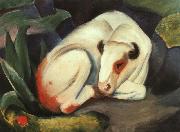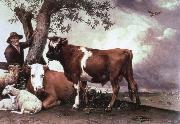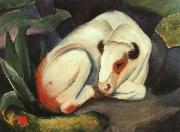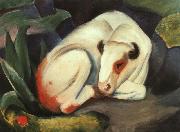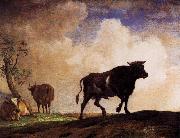Wholesale Oil Painting No Minimum |
|||||||||||
|
|
|||||||||||

|
|||||||||||
|
|
|
||||||||
Franz Marc1880-1916 German Franz Marc Locations Franz Marc was born in 1880, in the German town of Munich. His father, Wilhelm, was a professional landscape painter, and his mother Sophie was a strict Calvinist. He began study at the Academy of Fine Arts, Munich in 1900. In 1903 and 1907 he spent time in Paris and discovered a strong affinity for the work of Vincent van Gogh. Marc developed an important friendship with the artist August Macke in 1910. In 1911 he formed the Der Blaue Reiter artist circle with Macke, Wassily Kandinsky, and other artists who decided to split off from the Neue K??nstlervereinigung movement. He showed several of his works in the first Der Blaue Reiter exhibition at the Thannhauser Galleries in Munich between December 1911 and January 1912. The exhibition was the apex of the German expressionist movement and also showed in Berlin, Köln, Hagen, and Frankfurt. In 1912, Marc also met Robert Delaunay, whose use of color and futurist method was a major influence on Marc's work. Marc became influenced by futurism and cubism, and his art became stark and abstract in nature. His name was on a list of notable artists to be withdrawn from combat in World War I. Before the orders were carried out, he was struck in the head and killed instantly by a shell splinter during the Battle of Verdun (1916). |
||||||||
|
|
||||||||
The Bull
The Bull Painting ID:: 2745 |
1911
Solomon R Guggenheim Museum, New York 1911 Solomon R Guggenheim Museum, New York |
|||||||
|
|
||||||||
POTTER, PaulusDutch Baroque Era Painter, 1625-1654 Son of Pieter Potter. He was related through his mother, Aechtie Pouwels (d 1636), to the wealthy and powerful von Egmont and Semeyns families, who held important offices in Enkhuizen and at the court in The Hague. He worked in his father's studio in Amsterdam during the 1630s and, like him, painted history subjects that show the strong influence of Claes Moeyaert, with whom Paulus may also have studied. In the painting Abraham Returning from Canaan he adapted the landscape setting from an etching by Moses van Uyttenbroeck and the figures from works by Moeyaert from over ten years earlier. Significantly, however, he redistributed the numerous animals and figures that Moeyaert had aligned evenly across the frontal plane; Potter placed them to one side, permitting a view into the deep distance where other animals can be seen. Potter followed his father more than Moeyaert in searching for ways to integrate his figures with the landscape, |
||||||||
|
|
||||||||
|
|
the bull
the bull Painting ID:: 56077 |
1647,oil on canvas,92.75x113.375 in,235.5x339 cm,mauritshuis,the hague,netherlands 1647,oil on canvas,92.75x113.375 in,235.5x339 cm,mauritshuis,the hague,netherlands |
||||||
|
|
||||||||
Franz Marc1880-1916 German Franz Marc Locations Franz Marc was born in 1880, in the German town of Munich. His father, Wilhelm, was a professional landscape painter, and his mother Sophie was a strict Calvinist. He began study at the Academy of Fine Arts, Munich in 1900. In 1903 and 1907 he spent time in Paris and discovered a strong affinity for the work of Vincent van Gogh. Marc developed an important friendship with the artist August Macke in 1910. In 1911 he formed the Der Blaue Reiter artist circle with Macke, Wassily Kandinsky, and other artists who decided to split off from the Neue K??nstlervereinigung movement. He showed several of his works in the first Der Blaue Reiter exhibition at the Thannhauser Galleries in Munich between December 1911 and January 1912. The exhibition was the apex of the German expressionist movement and also showed in Berlin, Köln, Hagen, and Frankfurt. In 1912, Marc also met Robert Delaunay, whose use of color and futurist method was a major influence on Marc's work. Marc became influenced by futurism and cubism, and his art became stark and abstract in nature. His name was on a list of notable artists to be withdrawn from combat in World War I. Before the orders were carried out, he was struck in the head and killed instantly by a shell splinter during the Battle of Verdun (1916). |
||||||||
|
|
||||||||
|
|
The Bull
The Bull Painting ID:: 77823 |
The Bull (Der Stier), oil on canvas, Solomon R. Guggenheim Museum, New York.
cjr The Bull (Der Stier), oil on canvas, Solomon R. Guggenheim Museum, New York. cjr |
||||||
|
|
||||||||
Franz Marc1880-1916 German Franz Marc Locations Franz Marc was born in 1880, in the German town of Munich. His father, Wilhelm, was a professional landscape painter, and his mother Sophie was a strict Calvinist. He began study at the Academy of Fine Arts, Munich in 1900. In 1903 and 1907 he spent time in Paris and discovered a strong affinity for the work of Vincent van Gogh. Marc developed an important friendship with the artist August Macke in 1910. In 1911 he formed the Der Blaue Reiter artist circle with Macke, Wassily Kandinsky, and other artists who decided to split off from the Neue K??nstlervereinigung movement. He showed several of his works in the first Der Blaue Reiter exhibition at the Thannhauser Galleries in Munich between December 1911 and January 1912. The exhibition was the apex of the German expressionist movement and also showed in Berlin, Köln, Hagen, and Frankfurt. In 1912, Marc also met Robert Delaunay, whose use of color and futurist method was a major influence on Marc's work. Marc became influenced by futurism and cubism, and his art became stark and abstract in nature. His name was on a list of notable artists to be withdrawn from combat in World War I. Before the orders were carried out, he was struck in the head and killed instantly by a shell splinter during the Battle of Verdun (1916). |
||||||||
|
|
||||||||
|
|
The Bull
The Bull Painting ID:: 81099 |
oil on canvas, Solomon R. Guggenheim Museum, New York.
Date 1911(1911)
cyf oil on canvas, Solomon R. Guggenheim Museum, New York. Date 1911(1911) cyf |
||||||
|
|
||||||||
paulus potterPaulus Potter (baptised on November 20, 1625 in Enkhuizen ?C buried on January 17, 1654 in Amsterdam) was a Dutch painter, specialized in animals in landscapes, usually with a low point of view. Before Potter died of tuberculosis, 28-years old, he succeeded in producing about a hundred paintings, working continuously. Few details are known of Potter's life. In 1628 his family moved to Leiden, and in 1631 to Amsterdam, where young Paulus studied painting with his father, Pieter Symonsz Potter. After his mother died, his father started an affair with the wife of Pieter Codde, also living in the fancy Sint Antoniesbreestraat. For some time his father was a manufacturer of gilded leather hangings outside the city walls. Potter became a member of the Guild of Saint Luke in Delft, but by 1649, Paulus moved to The Hague, next to Jan van Goyen. Potter married in the Hague and his father-in-law, who was the leading building contractor in the Hague, introduced him to the Dutch elite. Amalia of Solms-Braunfels, a member of the stadholder's family and an art-lover, bought a painting with a pissing cow, but some court ladies seemed to have advised against it. By May 1652, after a case about delivering a new painting, he returned to Amsterdam. Potter was invited by Nicolaes Tulp, who was impressed by his civilized behavior and politeness. Potter painted his son Dirck Tulp, but only changed the face on an earlier work he was not able to sell. Paulus painted a self portrait which was at Hackwood Park, Hampshire until 1998, it is now at Elibank House, Buckinghamshire. |
||||||||
|
|
||||||||
|
|
The Bull
The Bull Painting ID:: 97976 |
1649(1649)
Medium oil on oak
cyf 1649(1649) Medium oil on oak cyf |
||||||
|
|
||||||||
|
paulus potter Paulus Potter (baptised on November 20, 1625 in Enkhuizen ?C buried on January 17, 1654 in Amsterdam) was a Dutch painter, specialized in animals in landscapes, usually with a low point of view. Before Potter died of tuberculosis, 28-years old, he succeeded in producing about a hundred paintings, working continuously. Few details are known of Potter's life. In 1628 his family moved to Leiden, and in 1631 to Amsterdam, where young Paulus studied painting with his father, Pieter Symonsz Potter. After his mother died, his father started an affair with the wife of Pieter Codde, also living in the fancy Sint Antoniesbreestraat. For some time his father was a manufacturer of gilded leather hangings outside the city walls. Potter became a member of the Guild of Saint Luke in Delft, but by 1649, Paulus moved to The Hague, next to Jan van Goyen. Potter married in the Hague and his father-in-law, who was the leading building contractor in the Hague, introduced him to the Dutch elite. Amalia of Solms-Braunfels, a member of the stadholder's family and an art-lover, bought a painting with a pissing cow, but some court ladies seemed to have advised against it. By May 1652, after a case about delivering a new painting, he returned to Amsterdam. Potter was invited by Nicolaes Tulp, who was impressed by his civilized behavior and politeness. Potter painted his son Dirck Tulp, but only changed the face on an earlier work he was not able to sell. Paulus painted a self portrait which was at Hackwood Park, Hampshire until 1998, it is now at Elibank House, Buckinghamshire. The Bull 1649(1649) Medium oil on oak cyf |
||||||||
|
|
||||||||
|
Prev Next
|
||||||||
|
|
||||||||
|
Related Paintings to paulus potter :. |
||||||||
|
|
||||||||
|
CONTACT US |
